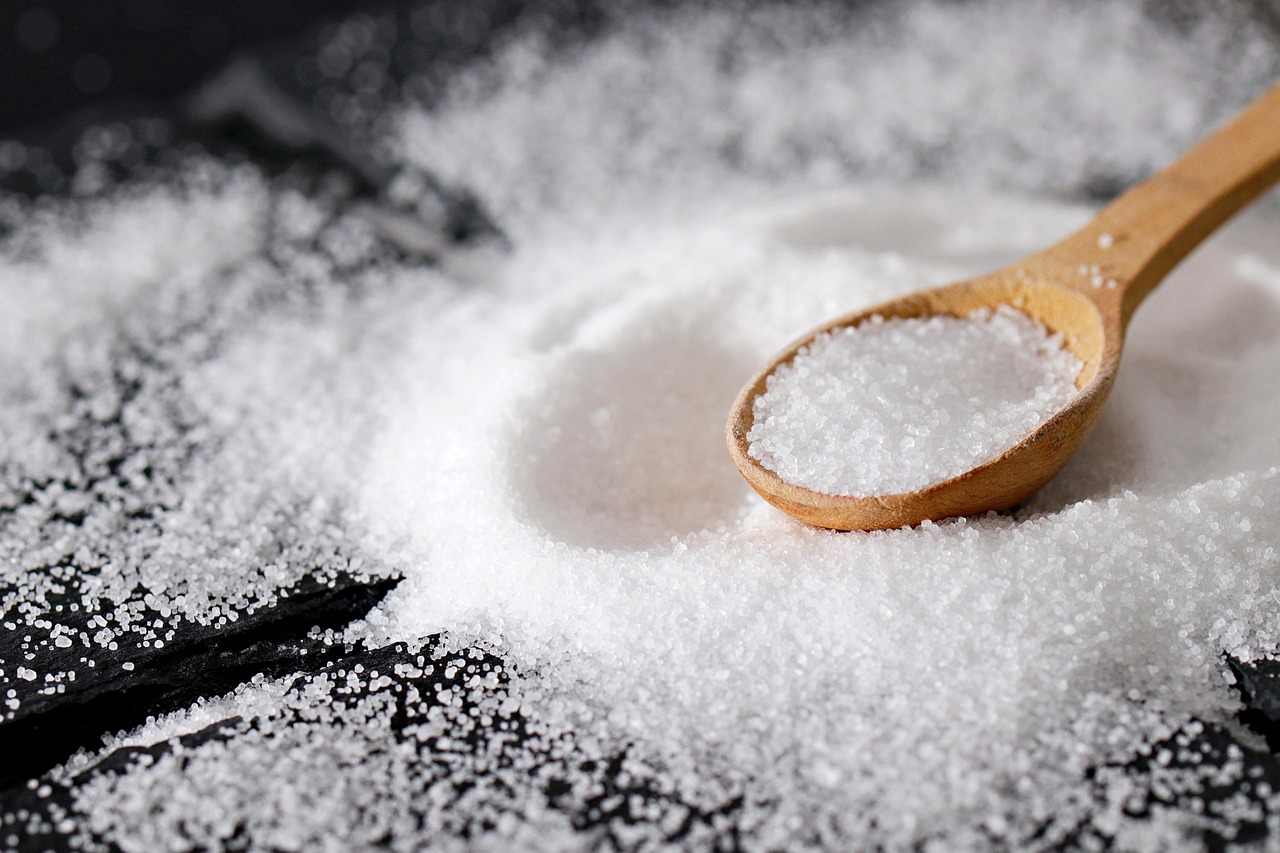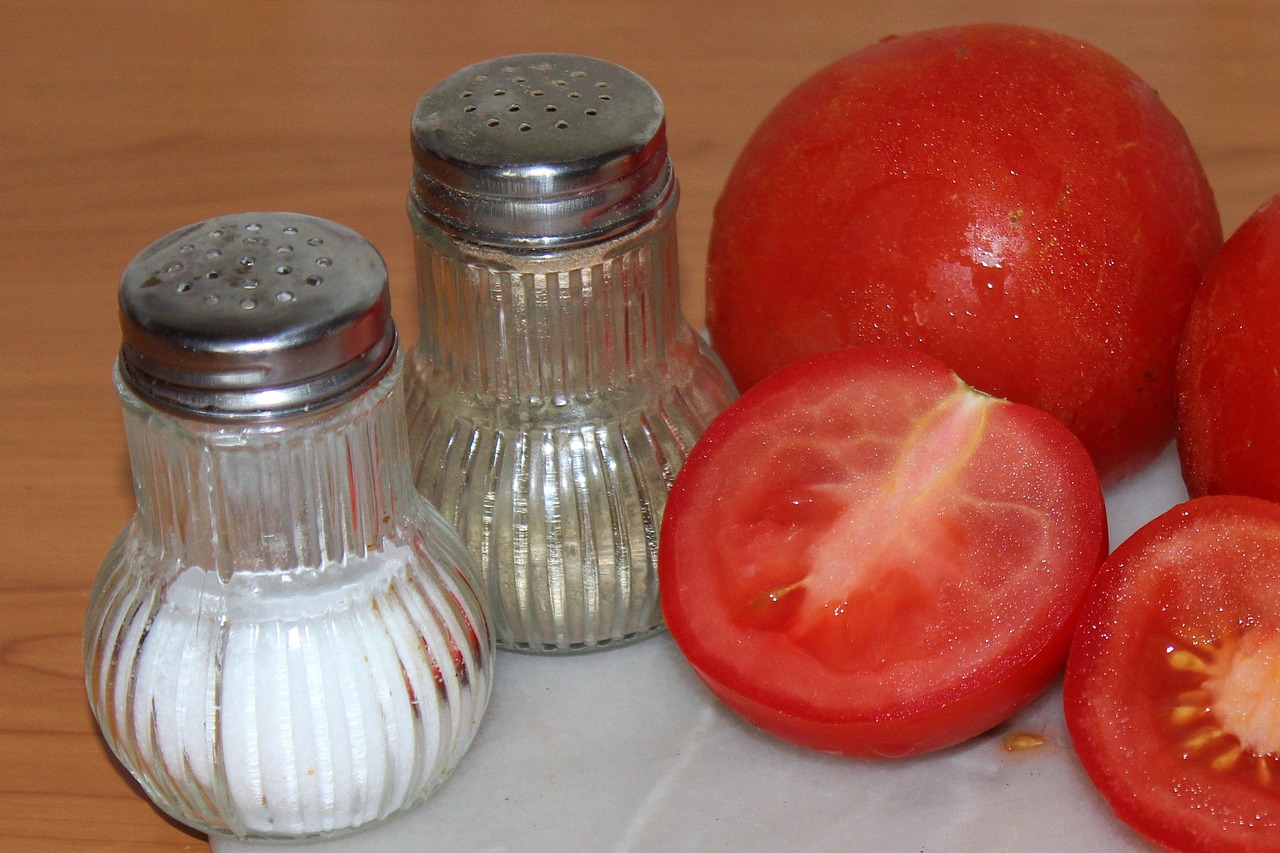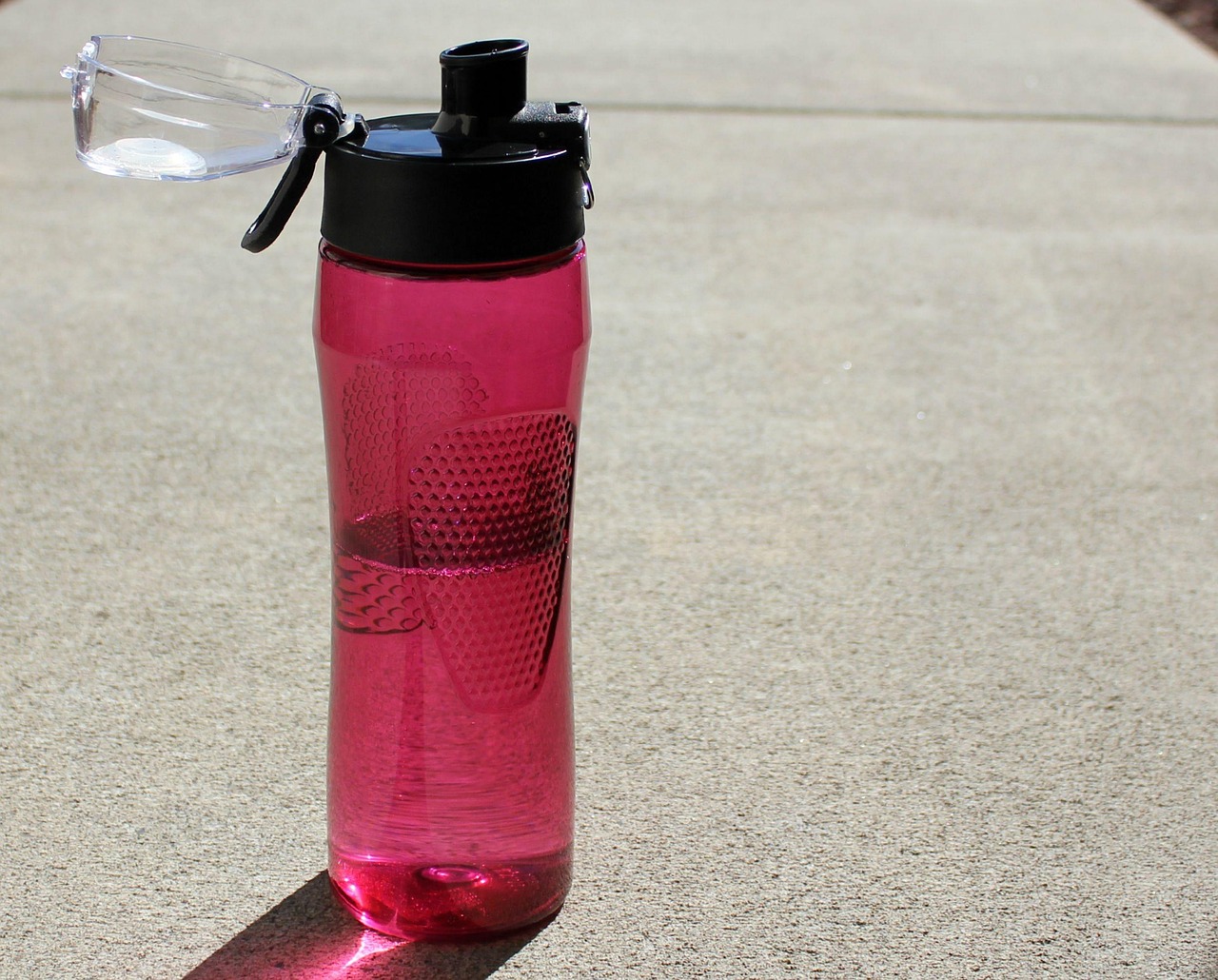When fasting for blood work, many patients wonder about the guidelines surrounding water consumption. This article delves into the specifics of fasting protocols, particularly addressing the frequently asked question: Can I drink water while fasting for blood tests? Understanding the rules can help ensure that your test results are accurate and reliable.
Understanding Fasting for Blood Tests
Fasting for blood tests is a standard procedure that involves abstaining from food and sometimes drink for a specified period before the test. The purpose of fasting is to eliminate any variables that could affect the accuracy of the results. By not consuming anything, healthcare providers can obtain a clear picture of your baseline health.
Why Is Fasting Important?
Fasting is crucial for obtaining precise measurements of various substances in the blood. Consuming food or beverages, including sugary drinks or even certain medications, can alter the levels of glucose, lipids, and other markers, leading to misleading results. For instance, fasting glucose tests are essential for diagnosing diabetes, as food intake can spike glucose levels temporarily.
Types of Blood Tests Requiring Fasting
- Glucose Tests: Essential for diabetes screening.
- Lipid Panels: Measure cholesterol and triglycerides.
- Comprehensive Metabolic Panels: Assess overall health.
Water Intake During Fasting
A common question arises about the consumption of water during the fasting period. Generally, drinking water is permitted and even encouraged. Staying hydrated can make the blood draw easier and more comfortable. However, it’s essential to avoid flavored or sweetened waters, as these can interfere with test results.
Does Drinking Water Affect Blood Test Results?
Understanding the impact of water consumption is vital. Hydration can influence blood volume, which may be significant for certain tests. For most standard tests, water does not significantly alter results, but it’s always best to consult with your healthcare provider regarding specific guidelines.
Hydration and Blood Volume
Maintaining proper hydration is important for overall health. Adequate fluid intake helps ensure that blood samples are drawn easily and can improve the accuracy of tests that rely on blood volume measurements.
Potential Impacts on Test Accuracy
While water is generally allowed, excessive consumption right before a test may dilute certain blood components, potentially skewing results. Always follow the advice of your healthcare professional regarding water intake.
Best Practices for Fasting Before Blood Work
- Timing Your Fasting Period: Typically, fasting lasts 8-12 hours, depending on the test. Ensure you know the required duration.
- Preparing for Your Appointment: Schedule your blood work early in the morning to minimize the fasting period. Avoid strenuous exercise before the test, as it can affect results.
Consulting with Your Healthcare Provider
Always consult your healthcare provider regarding fasting protocols. They can provide personalized advice based on your health status and the specific tests being conducted.
Clarifying Individual Needs
Every individual may have different health considerations. Discuss your medical history and any medications you are taking with your healthcare provider to ensure you receive tailored advice.
Addressing Concerns and Questions
It’s natural to have questions about fasting and hydration. Open communication with your healthcare provider can help alleviate any concerns and ensure a smooth testing process.

Understanding Fasting for Blood Tests
Fasting for blood tests is a common requirement in the medical field, aimed at ensuring the accuracy of test results. But what does fasting truly entail in this context? Fasting generally means abstaining from all food and drink, except for water, for a specified period before the test. The duration of fasting can vary, typically ranging from 8 to 12 hours, depending on the specific tests being conducted.
Understanding the importance of fasting is essential for patients. The primary reason for fasting is to prevent food and drink from interfering with the levels of substances in the blood, such as glucose and lipids. When a person eats or drinks, their body undergoes metabolic changes that can skew test results. For instance, consuming food can elevate blood sugar and triglyceride levels, leading to inaccurate readings that may misguide healthcare providers in diagnosing conditions.
Why Is Fasting Important?
Fasting is critical for several reasons:
- Accuracy: Accurate measurements are vital for proper diagnosis and treatment.
- Standardization: Fasting helps standardize test results, making it easier for healthcare providers to compare findings across different patients.
- Preventing Misinterpretation: Without fasting, there is a higher risk of misinterpreting results, which can lead to unnecessary treatments or missed diagnoses.
Types of Blood Tests Requiring Fasting
Not all blood tests require fasting. However, certain tests, such as:
- Glucose Tests: Fasting is essential to measure baseline blood sugar levels.
- Lipid Panels: These tests evaluate cholesterol levels and require fasting to avoid fluctuations caused by recent food intake.
- Basic Metabolic Panels: These tests assess electrolyte and metabolic levels and may require fasting to ensure accuracy.
Water Intake During Fasting
A common question that arises is whether patients can drink water during the fasting period. Generally, drinking water is permitted and even encouraged, as it helps maintain hydration and can make the blood draw easier. However, it is essential to avoid flavored or sugary drinks, as these can interfere with test results.
Does Drinking Water Affect Blood Test Results?
While water is typically allowed, its consumption can have varying impacts on certain blood tests. Staying hydrated can help ensure that blood volume remains adequate, which is crucial for accurate testing. However, excessive water intake right before a test may dilute blood samples, potentially affecting results.
Best Practices for Fasting Before Blood Work
To ensure the best outcomes, follow these best practices:
- Timing: Understand the recommended fasting duration based on your specific test.
- Preparation: Avoid strenuous activities and stick to a light diet the day before your test to minimize stress on your body.
- Consultation: Always consult with your healthcare provider for personalized fasting instructions.
In summary, understanding the rules and significance of fasting for blood tests is crucial for obtaining accurate results. Always prioritize open communication with your healthcare provider to address any questions or concerns regarding fasting protocols.

Why Is Fasting Important?
Fasting before blood work is an essential practice that significantly enhances the accuracy of various blood test results. When patients fast, they abstain from food and sometimes drink for a specified period before undergoing blood tests. This process is crucial for obtaining precise measurements of substances such as glucose, cholesterol, and triglycerides. In this section, we will delve deeper into the reasons why fasting is important and how it impacts the accuracy of blood tests.
When we eat, our bodies undergo a series of metabolic processes that can influence the levels of certain substances in the blood. For instance, consuming food can temporarily elevate blood sugar levels, which may lead to inaccurate results for tests like the glucose tolerance test. Fasting allows the body to return to a baseline state, providing a clearer picture of metabolic health.
Fasting is particularly important for tests that measure lipid profiles. These tests evaluate cholesterol and triglyceride levels, which are vital for assessing cardiovascular health. Eating before these tests can result in elevated triglyceride levels, potentially leading to misleading conclusions about a person’s risk of heart disease.
- Glucose Tests: These tests measure blood sugar levels and are critical for diagnosing diabetes.
- Lipid Panels: Assess cholesterol levels and are essential for evaluating heart health.
- Basic Metabolic Panel (BMP): This test measures glucose, calcium, and electrolytes, requiring fasting for accuracy.
Failing to adhere to fasting protocols can lead to false positives or negatives, which may result in unnecessary anxiety or treatment delays. For example, a falsely elevated glucose level could lead to a misdiagnosis of diabetes, while inaccurate lipid levels may result in inappropriate management of cardiovascular risks.
To ensure the best outcomes, patients should follow specific guidelines when fasting. Typically, a fasting period of 8-12 hours is recommended, depending on the test. During this time, it is crucial to avoid food and beverages other than water, which can help maintain hydration without affecting test results.
Before undergoing blood tests, it is always advisable to consult with a healthcare provider. They can provide personalized guidance based on individual health needs and the specific tests being performed. This ensures that patients are well-informed and prepared for the testing process.
In summary, fasting before blood work is not just a formality; it is a critical step in ensuring that test results are accurate and reliable. By understanding the importance of fasting, patients can take an active role in their health and ensure that they receive the most accurate assessments possible.
Types of Blood Tests Requiring Fasting
When it comes to blood tests, the requirement for fasting can vary significantly depending on the type of test being performed. Understanding which tests necessitate fasting is crucial for ensuring accurate results. In this section, we will explore the various types of blood tests that require fasting, the reasons behind these requirements, and how they impact the interpretation of test results.
Fasting is typically defined as abstaining from all food and drink, except for water, for a specific period before a blood test. The most common blood tests that necessitate fasting include:
- Glucose Tests: Fasting is essential for glucose tests, particularly the fasting blood glucose test, which measures the level of glucose in the blood after an overnight fast. This test is crucial for diagnosing diabetes and monitoring blood sugar levels.
- Lipid Panels: These tests assess cholesterol and triglyceride levels. Fasting for 9 to 12 hours before the test helps provide accurate measurements, as food intake can temporarily elevate lipid levels, skewing the results.
- Liver Function Tests: Some liver function tests may require fasting to ensure that the results reflect the liver’s performance without interference from recent food intake.
- Vitamin B12 and Folate Levels: Fasting may be required for accurate measurement of these vitamins, as recent meals can affect absorption and results.
The rationale behind fasting for these tests is primarily to avoid fluctuations in blood composition caused by recent food intake. When food is consumed, it can temporarily alter the levels of glucose, lipids, and other substances in the bloodstream, leading to inaccurate readings. Therefore, adhering to fasting guidelines is critical for healthcare providers to make informed decisions about a patient’s health.
Fasting helps to eliminate variables that could affect test outcomes. For instance, after eating, the body undergoes metabolic processes that can significantly influence the concentration of specific substances in the blood. By fasting, healthcare providers can obtain a clearer picture of a patient’s baseline health status.
In addition to the tests mentioned above, there are other specific tests that may also require fasting. It is essential for patients to consult with their healthcare provider to understand the requirements for their specific tests.
It’s worth noting that not all blood tests require fasting. Tests such as complete blood counts (CBC) and thyroid function tests can be performed without any fasting. Understanding which tests require fasting and which do not can help patients prepare adequately for their blood work.
In summary, fasting is a critical component of certain blood tests, particularly those that measure glucose and lipid levels. By understanding the types of tests that necessitate fasting, patients can ensure they are adequately prepared, leading to more accurate and reliable test results.
Common Fasting Blood Tests
When it comes to blood tests, understanding the requirements for fasting is essential for obtaining accurate results. Among the various tests, certain ones, including glucose and lipid panels, necessitate a fasting period prior to testing. In this section, we will explore these common fasting blood tests, their significance in diagnosing health conditions, and the rationale behind the fasting requirements.
- Glucose Test: This test is critical for diagnosing diabetes and monitoring blood sugar levels. Fasting for at least 8 hours before the test ensures that the results reflect your baseline glucose levels without the influence of recent food intake.
- Lipid Panel: A lipid panel measures cholesterol and triglyceride levels in the blood. Fasting for 9-12 hours prior to the test is important as it provides a clearer picture of your lipid profile, which is vital for assessing cardiovascular risk.
- Basic Metabolic Panel (BMP): This panel evaluates several substances in the blood, including glucose, calcium, and electrolytes. Fasting is generally required to ensure accurate measurements of these components, particularly glucose levels.
- Comprehensive Metabolic Panel (CMP): Similar to the BMP, the CMP includes additional tests for liver function. Fasting helps ensure that the results accurately reflect your metabolic state without external dietary influences.
These fasting blood tests play a crucial role in diagnosing various health conditions. For instance, elevated glucose levels may indicate diabetes or prediabetes, while abnormal lipid levels could suggest an increased risk of heart disease. By adhering to fasting protocols, healthcare providers can make informed decisions based on the most accurate data available.
It’s important to note that not all blood tests require fasting. For example, tests for complete blood counts (CBC) and thyroid function can typically be performed without fasting. Understanding which tests necessitate fasting and which do not can help patients prepare appropriately and alleviate any confusion regarding their blood work.
In summary, common fasting blood tests such as glucose and lipid panels are essential tools in the early detection and management of health conditions. Fasting prior to these tests ensures that the results are accurate and reliable, allowing healthcare providers to make better-informed decisions regarding patient care.
Tests That Don’t Require Fasting
When it comes to blood tests, many individuals are often concerned about the need to fast beforehand. While fasting is a common requirement for certain tests, there are several blood tests that do not require fasting. Understanding these tests can alleviate unnecessary stress and make the testing process more convenient.
What Are Non-Fasting Blood Tests?
Non-fasting blood tests are those that can be conducted without the need for the patient to abstain from food or drink for a specific period prior to the test. These tests are designed to measure various components of the blood that remain relatively stable regardless of recent food intake. This section will highlight some common non-fasting blood tests and explain why fasting is not necessary for them.
- Complete Blood Count (CBC): This test evaluates overall health and detects a variety of disorders, including anemia and infection. Since the results are not significantly affected by recent meals, fasting is not required.
- Thyroid Function Tests: These tests assess how well the thyroid is working. Levels of thyroid hormones remain stable and are not influenced by food intake, making fasting unnecessary.
- Vitamin D Levels: Measuring vitamin D levels can be done without fasting. The concentration of this vitamin in the blood does not fluctuate significantly with meals.
- Basic Metabolic Panel (BMP): While some components of this panel can be affected by food, many healthcare providers allow for non-fasting BMP tests, particularly if they are looking for specific markers.
- Liver Function Tests: These tests assess the health of the liver and can be performed without fasting as food intake does not significantly impact the liver enzymes measured.
Why Fasting Is Not Necessary
The primary reason fasting is not necessary for these tests is that the substances being measured do not vary significantly with food consumption. For instance, hormones like those measured in thyroid function tests remain stable throughout the day, regardless of meals. Additionally, tests like the CBC evaluate blood cells, which are not influenced by dietary intake.
Practical Considerations
For patients, the ability to undergo these tests without fasting can be a significant advantage. It allows for greater flexibility in scheduling appointments and can help reduce anxiety related to fasting. Moreover, for individuals with medical conditions that require regular monitoring, such as diabetes, the option to have non-fasting tests can simplify their management routine.
It is important to note that while many tests can be conducted without fasting, patients should always follow their healthcare provider’s instructions. In some cases, specific guidelines may be recommended based on individual health conditions or the specific tests being performed.
In summary, understanding which blood tests do not require fasting can help patients navigate their healthcare more effectively. By knowing that tests like CBC, thyroid function tests, and vitamin D levels can be performed without fasting, patients can approach their medical appointments with greater ease and confidence.
Water Intake During Fasting
When it comes to fasting for blood tests, one of the most frequently asked questions is whether individuals can consume water during this period. Understanding the guidelines surrounding water intake is crucial for anyone preparing for medical testing, as it can significantly impact the accuracy of results.
Fasting typically means abstaining from all food and beverages except for water. However, the rules can vary depending on the type of blood test being conducted. In general, drinking water is permitted and even encouraged during fasting, as it helps maintain hydration and can facilitate the blood draw process.
Staying hydrated before your blood test is important for several reasons:
- Improved Blood Volume: Adequate hydration can enhance blood volume, making it easier for healthcare professionals to draw blood.
- Reduced Risk of Dizziness: Fasting can sometimes lead to dizziness or fainting. Drinking water can help mitigate these effects.
- Maintaining Overall Health: Staying hydrated supports overall bodily functions, which is essential even when preparing for a test.
However, it’s essential to note that while water is generally acceptable, excessive consumption right before a test can potentially dilute blood samples, which might affect the results of certain tests. For instance, tests that measure electrolyte levels could be influenced by significant changes in blood concentration.
Understanding how water intake impacts blood test results is vital. While moderate water consumption is usually safe, it is essential to follow your healthcare provider’s instructions regarding hydration:
- Specific Tests: Some tests, like glucose or lipid panels, have strict fasting requirements. While water does not interfere with these tests, it is still advisable to limit intake to avoid any complications.
- Timing Matters: Drinking water too close to the time of the blood draw may not be advisable. It’s best to hydrate adequately in the hours leading up to the test.
To maximize the benefits of water intake while fasting, consider the following best practices:
- Stay Hydrated: Aim to drink a sufficient amount of water in the 24 hours prior to your test, but limit consumption in the hour leading up to the appointment.
- Consult Your Doctor: Always check with your healthcare provider about specific instructions related to hydration and fasting. Individual needs may vary based on medical history and the type of tests being performed.
- Avoid Other Beverages: Stick to plain water. Other beverages, including coffee, tea, or juices, can interfere with test results.
In conclusion, while the general guideline permits water intake during fasting for blood tests, individual circumstances can vary. Always prioritize consulting with your healthcare provider to ensure that you are following the best practices for your specific situation. This will help ensure that your test results are as accurate as possible, leading to better healthcare outcomes.
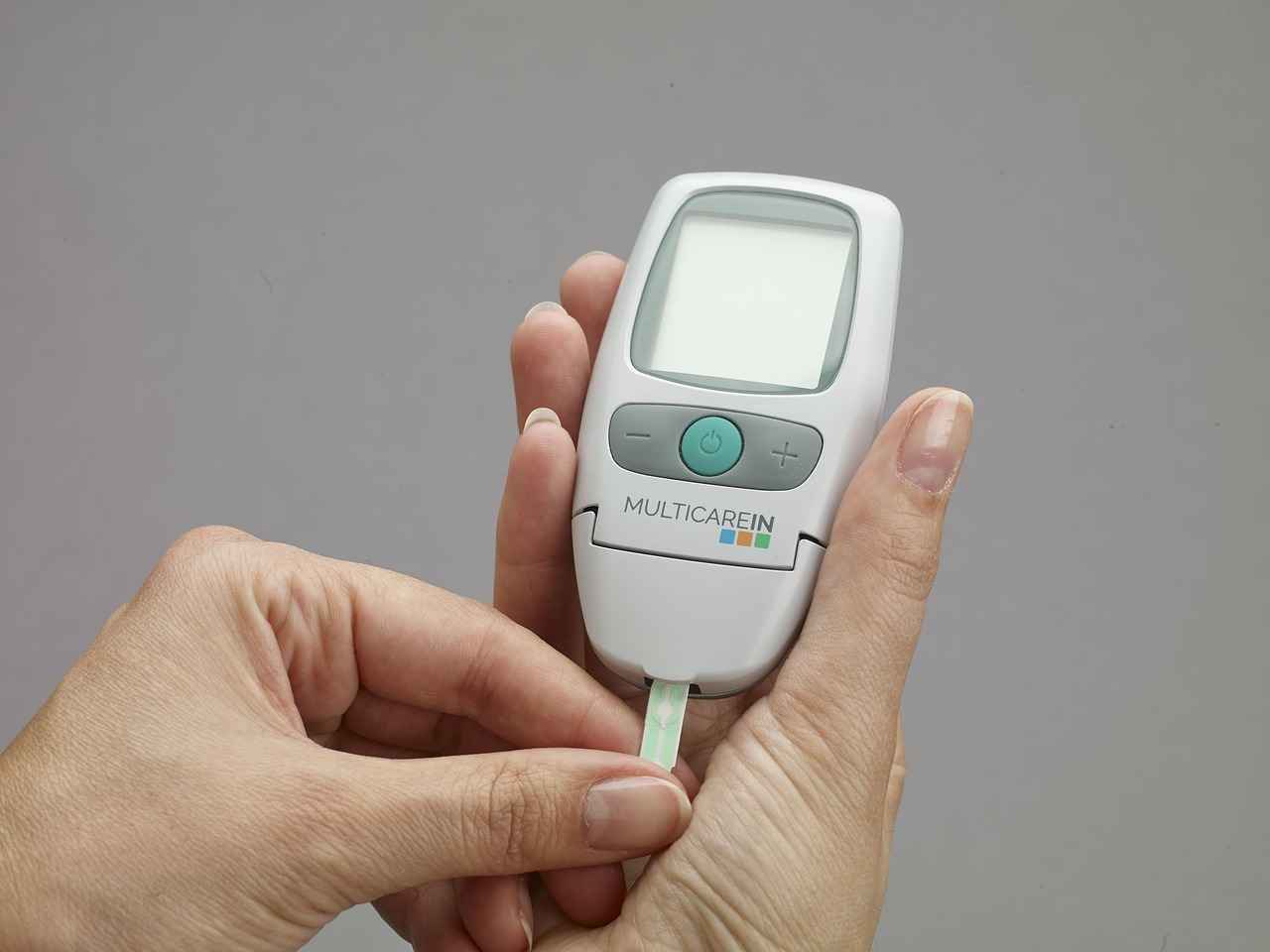
Does Drinking Water Affect Blood Test Results?
Understanding the impact of water consumption on blood test results is essential for anyone preparing for medical testing. While many people are aware that fasting may be required before certain tests, the question of whether to drink water often arises. This article will explore how drinking water can influence specific tests and the overall outcomes, providing clarity for patients and healthcare providers alike.
The Role of Hydration in Blood Tests
Hydration plays a significant role in maintaining optimal blood volume and viscosity. When you drink water, your body retains fluid, which can help in drawing blood more easily during tests. Adequate hydration can lead to better blood flow, making the process of drawing blood smoother and less painful.
How Water Intake Affects Test Results
- Glucose Tests: For fasting glucose tests, the recommendation is to avoid food and drinks other than water. Drinking water does not influence blood glucose levels, so it is generally permitted.
- Lipid Panels: Similar to glucose tests, lipid panels require fasting. Drinking water does not affect lipid levels, making it acceptable to stay hydrated.
- Kidney Function Tests: In tests assessing kidney function, hydration can impact the concentration of certain substances in the blood. Adequate water intake can help provide a clearer picture of kidney health.
Potential Risks of Water Consumption
While drinking water is mostly beneficial, there are instances where excessive consumption may lead to dilutional effects on certain test results. For example, if a patient consumes an excessive amount of water right before a blood test, it could potentially dilute the concentration of electrolytes or other substances, leading to inaccurate results.
Guidelines for Water Consumption Before Blood Tests
To ensure the most accurate results, follow these best practices regarding water intake:
- Consult Your Healthcare Provider: Always check with your doctor regarding their specific recommendations for water consumption before your blood test.
- Moderate Intake: If allowed, drink a moderate amount of water. Avoid excessive consumption right before the test.
- Avoid Other Beverages: Stick to plain water. Avoid coffee, tea, or any sugary drinks, as they can affect test results.
Conclusion
In summary, understanding the nuances of water consumption before blood tests can help ensure more accurate results. While drinking water is generally allowed and even recommended for hydration, it is essential to follow specific guidelines based on the type of test being conducted. Always consult with your healthcare provider for personalized advice to ensure the best outcomes for your blood work.
Hydration and Blood Volume
Maintaining proper hydration is essential for overall health and plays a crucial role in the context of blood tests. Hydration directly affects blood volume, which can significantly influence the accuracy of various blood test results. Understanding this relationship is vital for anyone preparing for blood work.
When we talk about hydration, we refer to the body’s ability to maintain an adequate level of fluids. Water is the most important component of our body, making up about 60% of our total body weight. It is involved in numerous physiological processes, including temperature regulation, nutrient transport, and waste elimination. Therefore, hydration is not just a matter of drinking water; it’s about ensuring that our body functions optimally.
Blood volume is the total amount of blood circulating within the body, which is composed of plasma and cells. Plasma, which is primarily made up of water, constitutes about 55% of total blood volume. When a person is dehydrated, the volume of plasma decreases, which can lead to a higher concentration of blood components like red blood cells, white blood cells, and platelets. This can result in misleading test results, particularly in tests that measure concentrations of substances in the blood.
| Hydration Status | Impact on Blood Tests |
|---|---|
| Well-Hydrated | More accurate readings; balanced blood volume. |
| Dehydrated | Higher concentrations of substances; potential for false positives. |
For example, in tests measuring glucose levels or kidney function, dehydration can lead to elevated results that may not accurately reflect a person’s health status. This is particularly important for individuals undergoing tests for conditions like diabetes or renal disease. In such cases, a well-hydrated state is crucial for obtaining reliable results.
Moreover, hydration can influence the viscosity of blood. When dehydrated, blood becomes thicker, which can affect circulation and lead to complications during blood draws. A thinner, well-hydrated blood sample is easier for healthcare professionals to work with, ensuring a smoother process and reducing the risk of complications.
It’s also essential to recognize that while water intake is generally permitted during fasting for blood tests, excessive consumption immediately before a test can also skew results. Therefore, moderation is key. Drinking a reasonable amount of water can help maintain blood volume without overwhelming the system.
In conclusion, staying adequately hydrated is a simple yet effective way to improve the accuracy of blood tests. By ensuring optimal hydration levels prior to testing, individuals can help their healthcare providers obtain more reliable results, leading to better-informed health decisions. Always consult with your healthcare provider regarding specific hydration recommendations tailored to your individual needs and the type of blood tests you will undergo.
Potential Impacts on Test Accuracy
When preparing for blood tests, understanding the nuances of fasting and hydration is essential. One common concern among patients is the potential impacts of water consumption on test accuracy. While many healthcare providers allow water intake during fasting, the effects it may have on certain blood tests warrant careful consideration.
Drinking water during the fasting period is generally considered acceptable, but it can have specific effects on certain blood test results. It is crucial to understand how hydration influences the accuracy of various tests to ensure reliable outcomes.
- Dilution of Blood Components: Consuming a significant amount of water can dilute blood components, potentially leading to lower concentrations of certain analytes. For example, tests measuring electrolytes or hormones may yield results that do not accurately reflect the patient’s true physiological state.
- Impact on Glucose Levels: Water intake can also affect blood glucose readings. While hydration is essential, excessive water consumption may alter the concentration of glucose in the bloodstream, leading to misleading results, especially in diabetic patients.
- Blood Volume Variations: Hydration levels can influence blood volume, which in turn affects the viscosity of blood. Changes in viscosity can impact tests such as lipid panels, which are sensitive to the physical properties of blood.
- Sample Quality: The quality of blood samples is paramount for accurate testing. If a patient drinks too much water, it may affect the clotting factors and other properties of the blood, potentially compromising the integrity of the sample.
Healthcare professionals often advise patients to follow specific guidelines regarding water intake before blood tests. It is typically recommended to drink small amounts of water to stay hydrated without overdoing it. This approach helps maintain a balance that supports accurate test results while ensuring the patient remains comfortable during the fasting period.
Moreover, certain tests, such as those assessing kidney function, may require stricter control over water intake. In these cases, patients should consult their healthcare providers for personalized advice tailored to their medical history and the specific tests being conducted.
In summary, while water consumption is generally permitted during fasting for blood tests, it is essential to be mindful of the amount consumed. Understanding the potential impacts on test accuracy can help patients make informed decisions and ensure that their test results are as reliable as possible. Always consult with a healthcare provider to clarify any doubts regarding fasting protocols and hydration guidelines.

Best Practices for Fasting Before Blood Work
When preparing for blood tests, adhering to best practices for fasting is crucial to ensure that the results are accurate and reliable. Fasting can significantly affect the levels of various substances in your blood, and understanding how to prepare effectively is essential for obtaining the best results. This section outlines practical tips to help you navigate the fasting process smoothly.
Fasting typically involves abstaining from all food and drink, except water, for a specified period before your blood test. The most common fasting duration is 8 to 12 hours, but this can vary depending on the specific tests being conducted. It’s important to follow the guidelines provided by your healthcare provider, as they will tailor the fasting requirements to your individual needs.
- Plan your blood test for early in the morning to minimize the fasting duration.
- Avoid late-night snacks, as they can extend the fasting period unnecessarily.
- If your test is scheduled later in the day, consider adjusting your meal times the day before.
Preparation plays a key role in making the fasting process easier. Here are some tips:
- Stay Hydrated: Drink plenty of water the day before your test to ensure you are well-hydrated, which can facilitate blood draw.
- Avoid Alcohol and Caffeine: Both substances can interfere with test results, so it’s best to avoid them for at least 24 hours prior to your blood work.
- Communicate with Your Healthcare Provider: If you have any concerns or are on medication, discuss these with your provider beforehand.
During the fasting period, it’s normal to feel hungry or fatigued. To help manage these feelings:
- Keep Busy: Engage in light activities to distract yourself from hunger.
- Stay Positive: Remind yourself of the importance of the test and how it contributes to your health.
After your blood test, you may resume your normal eating and drinking habits. However, it’s a good idea to start with light meals, especially if you are feeling faint or dizzy from fasting. This will help your body readjust after the fasting period.
In summary, following these best practices for fasting before blood work is essential for obtaining accurate results. By understanding the guidelines, timing your fasting period appropriately, and preparing for your appointment, you can ensure a smoother experience. Always consult with your healthcare provider for personalized advice tailored to your specific health needs.
Timing Your Fasting Period
is a critical component of preparing for blood work. Understanding how long to fast can significantly impact the accuracy of your test results. In this section, we will explore the recommended fasting durations and how they differ based on the type of blood test being conducted.
Fasting generally means abstaining from all food and beverages, except for water, for a specified period before your blood test. The standard fasting period is typically 8 to 12 hours, but this can vary depending on the specific tests ordered by your healthcare provider. For instance, tests measuring blood glucose levels often require a fasting period of at least 8 hours, while lipid panels may necessitate a longer fasting duration of up to 12 hours.
It’s important to note that the fasting duration can vary significantly based on the type of blood test. Below is a table summarizing common blood tests and their respective fasting requirements:
| Type of Blood Test | Recommended Fasting Duration |
|---|---|
| Glucose Test | 8 hours |
| Lipid Panel | 9-12 hours |
| Basic Metabolic Panel | 8-12 hours |
| Comprehensive Metabolic Panel | 8-12 hours |
| Thyroid Function Tests | No fasting required |
When preparing for fasting, it is crucial to follow your healthcare provider’s instructions regarding the specific tests being performed. Some tests, such as those measuring thyroid hormone levels, do not require fasting at all. Therefore, it’s essential to clarify the requirements for each test with your doctor.
In addition to the length of the fasting period, the timing of your last meal can also impact your results. A heavy meal just before fasting can lead to elevated glucose or lipid levels, potentially skewing the results. Thus, it is advisable to have a light meal the night before your test if you are required to fast.
Another consideration is the timing of your appointment. If your test is scheduled for early in the morning, it may be easier to fast overnight. However, if your appointment is later in the day, you may need to adjust your meal and fasting schedule accordingly.
In summary, knowing how long to fast is essential for achieving accurate blood test results. Always consult with your healthcare provider to understand the specific fasting requirements for your tests and to ensure that you are adequately prepared. This preparation not only enhances the accuracy of your results but also contributes to a smoother testing experience.
Preparing for Your Appointment
Preparation is key to ensuring a smooth and successful fasting experience before your blood work appointment. By following certain guidelines, you can minimize discomfort and maximize the accuracy of your test results. This section outlines practical steps to take before your appointment.
- Understand the Fasting Requirements: Before your appointment, it’s essential to know the specific fasting requirements for the tests you will be undergoing. Some tests may require fasting for 8-12 hours, while others may vary. Always confirm with your healthcare provider.
- Plan Your Last Meal: Schedule your last meal wisely. Aim for a balanced meal that includes proteins, healthy fats, and complex carbohydrates. This will help sustain your energy levels during the fasting period.
- Stay Hydrated: While fasting often restricts food intake, drinking water is generally encouraged. Staying hydrated can help with blood draw ease and may improve blood volume, which is beneficial for accurate results.
- Avoid Caffeine and Alcohol: It’s advisable to refrain from consuming caffeine and alcohol the day before your test. Both substances can affect your hydration levels and potentially skew test results.
- Get a Good Night’s Sleep: Prioritize rest the night before your appointment. A well-rested body can help you cope better with the fasting period and reduce anxiety.
- Dress Comfortably: Wear loose-fitting clothing that allows easy access to your arms for the blood draw. This can make the process more comfortable and less stressful.
- Prepare for Potential Side Effects: Fasting may lead to dizziness or fatigue. Have a plan in place for after your appointment, such as having a small snack ready to replenish your energy levels.
- Communicate with Your Healthcare Provider: If you have any concerns or specific health conditions, discuss them with your healthcare provider prior to your appointment. They can provide tailored advice and support.
By following these practical steps, you can enhance your fasting experience and ensure that you are well-prepared for your blood work appointment. Remember, taking a proactive approach not only helps in achieving accurate test results but also contributes to your overall health and well-being.
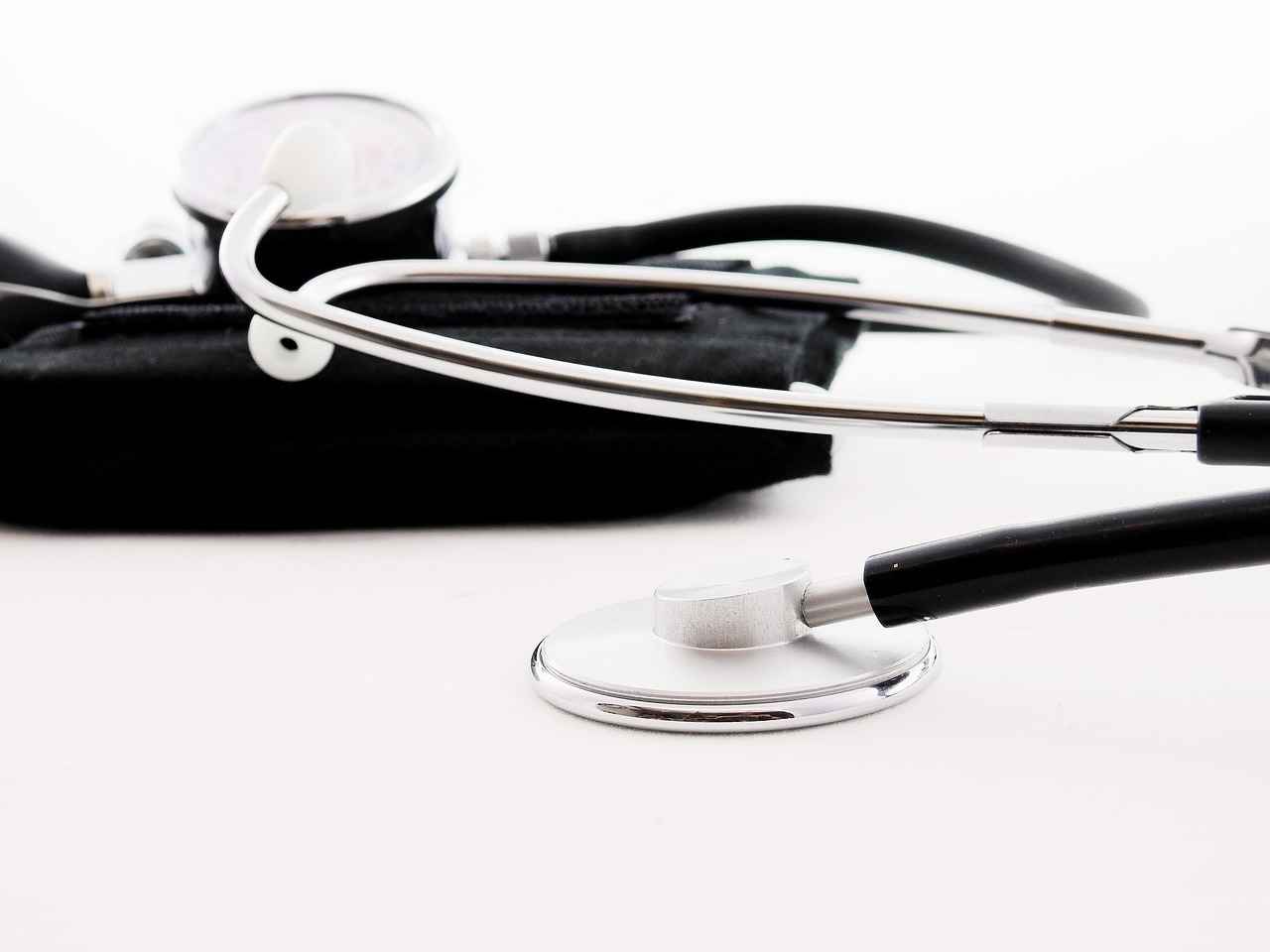
Consulting with Your Healthcare Provider
When preparing for blood tests, it is vital to consult your healthcare provider regarding fasting protocols. This section emphasizes the importance of professional guidance in preparing for blood tests, ensuring that individuals receive tailored advice that considers their unique health circumstances.
Fasting can vary significantly depending on the type of blood test being conducted. For instance, some tests require a fasting period of 8-12 hours, while others may have different requirements. Healthcare providers are equipped to offer specific instructions based on the tests ordered and the patient’s health history.
- Individual Health Considerations: Each patient has unique health needs that can influence fasting requirements. Conditions such as diabetes or dehydration can alter the way fasting affects test results.
- Types of Tests: Different blood tests have varying fasting needs. Consulting with a healthcare provider helps clarify which tests require fasting and which do not.
- Medications and Supplements: Some medications may need to be taken or avoided during the fasting period. A healthcare provider can provide guidance on how to manage these medications effectively.
Moreover, discussing any concerns or questions before the test is crucial. Patients often have doubts about what they can consume during fasting, including whether water is permitted. Open communication with healthcare providers allows for clarification on these matters, leading to a smoother testing experience.
Additionally, addressing hydration is essential. While many healthcare professionals agree that drinking water is generally acceptable during fasting, it is important to confirm this with your provider, as it can affect certain test results. For example, excessive water intake may dilute blood samples, potentially skewing results.
In summary, the significance of consulting with your healthcare provider cannot be overstated. Their expertise ensures that patients are fully prepared for their blood tests, leading to accurate results and better health outcomes. Always prioritize professional guidance to navigate the complexities of fasting protocols effectively.
Clarifying Individual Needs
When it comes to health and wellness, individual needs vary significantly. Each person has a unique set of health considerations, influenced by factors such as age, medical history, lifestyle, and specific health conditions. This variability makes it essential to seek personalized advice from healthcare professionals, especially when it involves practices like fasting and hydration prior to blood work.
Fasting is often a requirement for certain blood tests to ensure accurate results. However, the guidelines surrounding fasting can differ based on individual health circumstances. For instance, someone with diabetes may need tailored fasting instructions compared to a healthy individual. Therefore, consulting with a healthcare provider is crucial to clarify any specific needs related to fasting.
Moreover, hydration plays a vital role in overall health and can affect blood test results. While drinking water is generally permitted during fasting, the amount and timing can vary based on individual health considerations. For example, individuals with kidney issues may need to limit their fluid intake, while others may benefit from staying well-hydrated to ensure accurate blood volume levels during testing.
- Chronic Conditions: Patients with chronic illnesses should discuss their unique fasting and hydration needs with their healthcare provider.
- Medications: Some medications may require adjustments during the fasting period, making professional guidance essential.
- Age and Gender: These factors can also influence hydration needs and fasting protocols, necessitating tailored advice.
Additionally, open communication with healthcare providers is vital. Patients should feel comfortable asking questions about their fasting and hydration protocols. This dialogue can help to clarify any uncertainties and ensure that individuals follow the best practices suited to their health status.
For instance, if a patient is unsure about whether they can drink water during their fasting period, they should consult their healthcare provider. This conversation can lead to a better understanding of how hydration might influence their specific test results and overall health outcomes.
In summary, personalized healthcare advice is essential when it comes to fasting and hydration before blood work. Each individual’s health considerations can significantly affect their fasting protocols. Therefore, it is imperative to consult with healthcare professionals to ensure that fasting and hydration practices align with personal health needs.
Addressing Concerns and Questions
When preparing for blood tests, many patients have valid questions regarding the rules of fasting, especially concerning water intake. It is essential to understand that open communication with healthcare providers is crucial for addressing these concerns effectively. This section aims to clarify common questions and encourage patients to seek guidance from their medical professionals.
Firstly, it is important to recognize that fasting is not a one-size-fits-all requirement. Different tests may have varying protocols, and what is permissible for one test may not be for another. Therefore, patients should feel empowered to ask their healthcare providers specific questions about their individual fasting requirements.
- What is the purpose of fasting? Fasting helps ensure that test results are accurate by eliminating variables that could affect the measurements, such as recent food intake.
- Can I drink water while fasting? Generally, water is allowed during fasting periods, but it is crucial to confirm this with your provider, as some tests may have specific restrictions.
- How does hydration affect my tests? Staying hydrated can influence blood volume, which may be beneficial for certain tests, but excessive water intake might dilute some blood components, potentially skewing results.
Patients should not hesitate to voice any uncertainties they may have regarding their fasting protocols. For instance, if you are unsure about the duration of your fasting period or the types of fluids that are acceptable, asking your healthcare provider can provide clarity and ease any anxiety.
Moreover, it is advisable to discuss any medical conditions or medications that might influence fasting requirements. Certain health issues may necessitate modifications to standard fasting guidelines, and healthcare providers can offer personalized recommendations tailored to your situation.
In addition, if you have a history of fainting or low blood sugar, inform your provider. They may suggest alternative approaches to fasting or offer strategies to mitigate these risks during the testing process.
Finally, keep in mind that healthcare professionals are there to support you. Engaging in a dialogue about your concerns not only fosters a better understanding but also enhances the overall healthcare experience. Remember, your health is a partnership between you and your provider, and asking questions is a key part of that partnership.
Frequently Asked Questions
- Can I drink water while fasting for blood work?
Yes, you can generally drink water while fasting for blood tests. Staying hydrated is important, and water does not typically interfere with most test results.
- Does drinking water affect blood test results?
In most cases, drinking water does not affect blood test results. However, it’s always best to consult your healthcare provider for specific tests that may have different guidelines.
- How long should I fast before my blood test?
The fasting duration usually ranges from 8 to 12 hours, depending on the type of blood test. Always follow the instructions given by your healthcare provider for the best results.
- What tests require fasting?
Common fasting blood tests include glucose and lipid panels. These tests require fasting to ensure accurate measurements of substances in your blood.
- Are there blood tests that don’t require fasting?
Yes, several blood tests, such as complete blood counts (CBC), can be performed without fasting. It’s essential to know which tests require fasting to prepare accordingly.
- Should I consult my doctor about fasting?
Absolutely! Consulting your healthcare provider is crucial for personalized advice on fasting and hydration based on your individual health needs.



